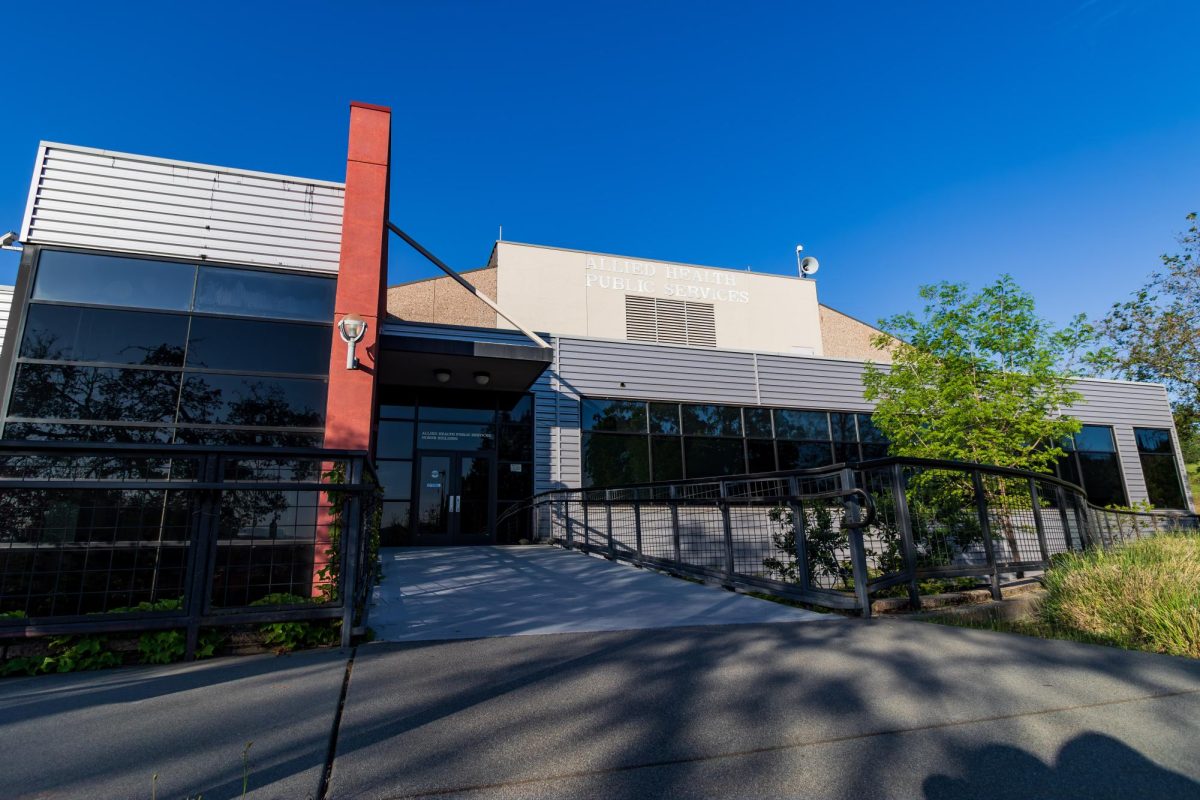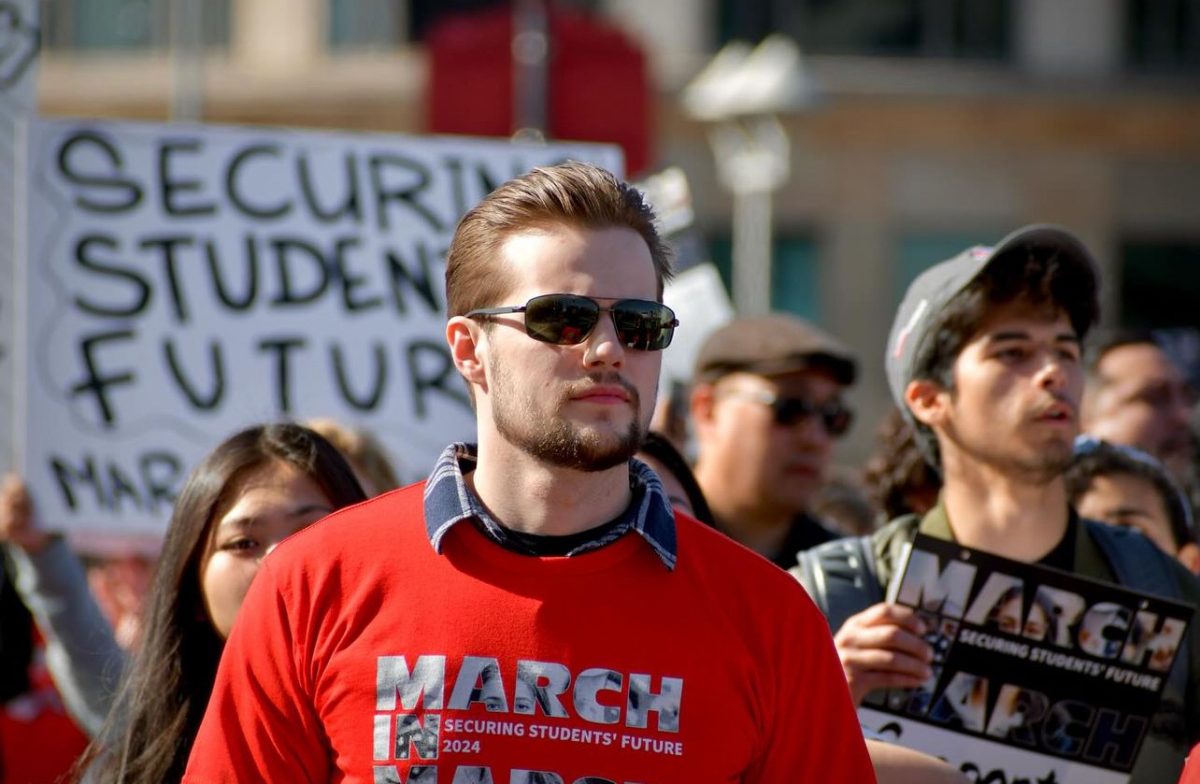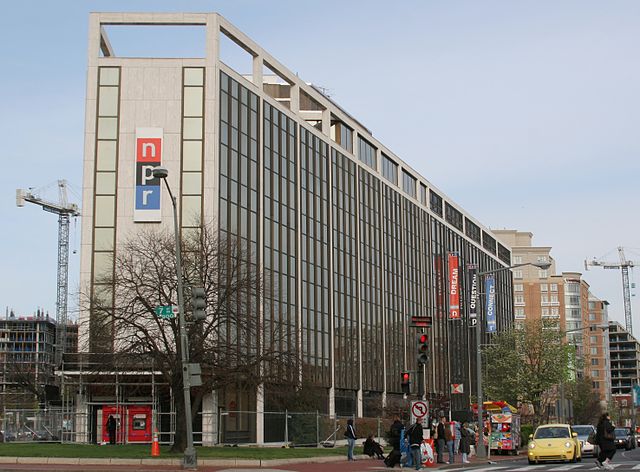At Butte College, students appreciate and forever cherish their pre-graduation ceremonies and celebrations. Students feel valued when given the time before actual commencement to celebrate with their closest peers, their instructors and mentors, and most importantly their families.
Despite the importance of these commemorations, recent conversations about changes regarding these events have not included student input. Students should always be involved in decision making processes that affect them. The changes I am about to discuss directly affect the equitability, inclusivity, and meaning involved within these events. These decisions affect a significant number of students and should be reconsidered and proactively prevented. I am not only going to discuss the ruling against graduation gowns and caps for celebrations, but also the decision to contract non-inclusive venues for ceremonies.
Our Butte College Student Senate has been informed by students of not being able to wear their graduation gown or cap during pre-commencement celebrations. While we do understand there was specific reasoning resulting in the judgment, it still takes away from the purpose of these celebrations. What’s the purpose? To feel supported. To feel accomplished. To feel accepted. To show our identities and cultures and to express ourselves. How is this achieved with these events? Through food, games, photos, videos, and most importantly recognition. Recognition that we, as students, have worked so hard for. The majority of students feel celebrated at these events, even more so than at commencement, because of the essence of culture and community.
Student groups and celebrations affected by the ban include International, EOPS, Athletic Awards, API, Undocu Center, Native American, Black Student, Lavender QRC, Veterans, Physical Science Awards, LatinX, and Cosmetology.
Some arguments made by the college in support of the ban include preserving the full attire(cap, gown, tassel) for commencement only. During celebrations, it was noticed that there was a lack of consistency in everyone wearing the full attire, in which the college felt as if this looked bad. The action of moving the tassel was sometimes also taken at celebrations, an action which the college felt took away from commencement.
The Student Senate with the support of students would strongly urge that this decision be reconsidered. The college should celebrate the rich and diverse culture of our students and make them feel included. Instead of abolishing the use of caps and gowns, create specific boundaries to provide guidance to all departments holding celebrations. Students are obligated to purchase this attire. We have the right to wear it whenever, wherever, and however we please.
Another way in which the college has not been inclusive is in the selection of venues for pre commencement ceremonies. Everyone deserves to be celebrated and recognized in an venue that is inclusive to them. A church was selected as one of the venues for several of this year’s ceremonies. This includes the RN pinning of class 36, State Parks Academy, 81st Fire Academy, and the 153rd Basic AJLE Academy. Some are still listed as “to be determined,” and how can students be assured that they will be celebrated if they might not be included? We must consider the possibility that some students of differing religious backgrounds may be uncomfortable or feel unwelcome in such a venue. This is not an inclusive venue because all churches are devotional in nature, therefore excludes students that have differing religious beliefs. Their beliefs not only physically exclude them, but affect their emotional well being by making students feel uncomfortable, underrepresented, and upset.
Student groups, ceremonies, and academies affected by decision making of Allied Health Department include State Parks Academy, Respiratory Care, Advanced Manufacturing, RN Pinning, Automotive Technology, Fire Academy, Welding Technology, Law Enforcement, Paramedic, and Fish and Wildlife.
Nursing students, in particular, stood up for their classmates, as Muslim and Hmong students could not attend due to their religious beliefs conflicting with the venue. Once again, I must question if there are other religious students that are graduating from these academies and programs and if they would feel safe enough to say something. I know for a fact that many nursing students did not want me to use their names in this piece, as they felt it was a risk to their education. If this, in and of itself, doesn’t show the severity of this situation and how students do not feel safe using their voices, I don’t know what does. This has caused many students, faculty, and staff to feel as if Butte College’s commitment to DEIA2 is an illusion. Students fought for this venue to be changed, and the event was ultimately moved outside. Is this equitable when all the other events are inside? Is it inclusive when there were no steps taken to prevent this venue from being used in the future?
I believe the college still sees this issue as an anomaly, and deemed it as resolved. I’m here to reveal that it’s neither. This goes further than just an “accommodation.” Students want equity. This is not about one student. This issue extends beyond this year’s graduating class.
Butte College’s commitment to Diversity and Equity reads;
“Diversity: We appreciate the attributes, capabilities and differences of each individual and we foster the social responsibility to create an inclusive institution that supports the success of all students and provides them with a global perspective.”(1)
“Equity: We are committed to creating the institutional conditions that support student learning and achievement and result in a fair, just and welcoming campus community.”(1)
The attributes, capabilities, and differences of individual students do not feel appreciated or welcomed. Student success feels neither supported, nor appreciated. The institutional conditions are not supportive of achievement, through these decisions made by the college. Students do not feel that these decisions are fair, just, or welcoming. Students doubt the success of their incoming counterparts because of how hostile the conditions have become. This is the message Butte College has sent to students as a result of their actions.
The resulting reality of this situation is that students feel deceived by commitments made by Butte College, and it is my job, as a student representative, to show the student perspective at Butte college. It’s Butte College’s job as an academic institution to uphold the values they’ve committed to, and to learn from their mistakes. It is the social responsibility of the college to recognize how the students feel, and it’s unfortunate that it takes a student in a position of leadership for the college to listen.
I am calling now to the students. We have the power to create change as students if we come together. Our Student Senate is here to advocate for your needs and rights as students. Two of student 9+1 rights are “standards and policies regarding student preparation and success” and “student services planning and development”(2). This means we as students have the right to be involved in the planning of stated decisions as it impacts our success. Are we going to let Butte College take away from our individual rights? Are we going to let the administration dis-include us and future students in the celebrations and ceremonies we deserve?
Sources:






Cheyanne • Nov 8, 2024 at 10:41 pm
Liz. this is really good stuff! I love that you’re bringing attention to issues like these. In order for students to get the best experience out of school, inclusiveness is absolutely necessary. A church is incredibly inappropriate for a ceremony like this, you covered the bases well.
How do we advocate and get proactive regarding this? I am sure other students would love to become more involved in this too. I want to help make a difference with you!